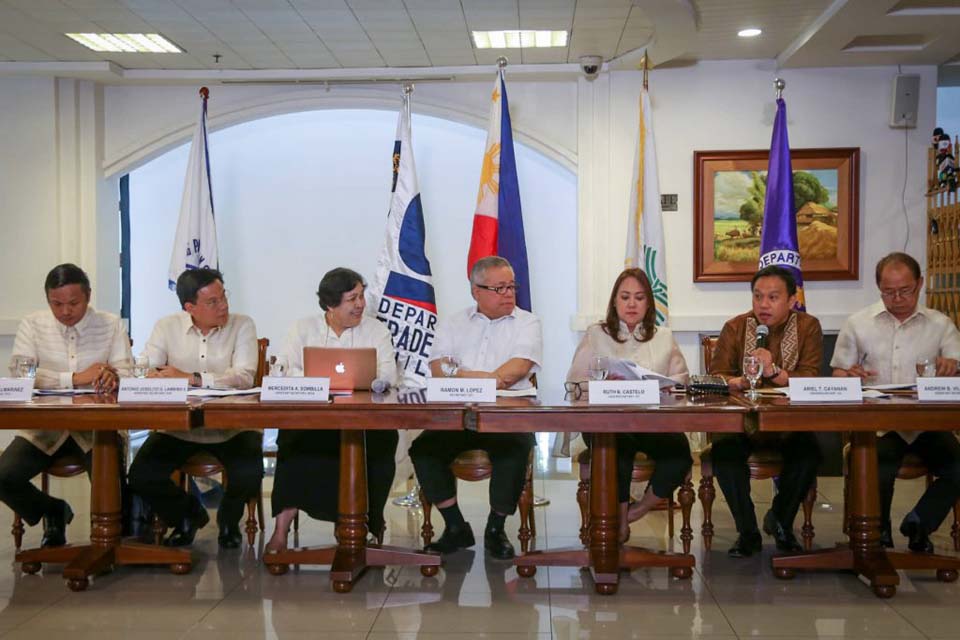
The Departments of Agriculture (DA), Trade and Industry (DTI), Finance (DOF), and the National Economic Development Authority (NEDA) jointly conducted a Rice Traders Forum at the Ayuntamiento de Manila, Intramuros, Manila on April 29, 2019.
The discussions focused on the benefits of the rice importation procedures under the Republic Act 11203 or the Rice Liberalization Act.
Trade Secretary Ramon T. Lopez said the law ensures that there will be available, accessible, and affordable food for every Filipino.
“The law aims to protect not only the farmers but Filipino consumers as well,” Lopez said.
He added that aside from protecting farmers, the government seeks to promote production competitiveness, to ensure better Philippine economy.
Agriculture Undersecretary Ariel T. Cayanan said the DA aims to improve competitiveness and increase farm income of the rice farmers. He said mechanization plays a big role in improving the country’s rice competitiveness.
“With greater support comes greater production,” Cayanan said.
“Our goal is to decrease production cost, and increase average yield of the farmer without even touching the expansion of area to make the farm gate prices lower,” he added.
Target rice production for 2018 is at 20 million metric tons (MMT).
Faster Arrival of Imported Rice
During the discussion, concerned agencies brought up their concern regarding faster importation of rice with the reform import procedures.
Under the RA 11203, the importers only need to secure a Sanitary and Phytosanitary Import Clearance (SPSIC) from the Bureau of Plant Industry (DA-BPI). After validation, they will be registered with the DA Trade System Registration of the BPI.
“While things are made easy for you, government expects you to be aware of moral obligation,” Agriculture Secretary Manny F. Piñol pointed out in his message delivered by Usec. Cayanan.
“This is not just about importation of rice so that you will earn profit. You have to understand that the President would like to bring down price of rice to the market,” the message further stated.
The Milled Rice Importation Process draft suggests that the application for import permit will only take more or less 28 working days, following the 7 working days for BPI registration, 7 days for the release of SPSIC. The rest will follow the usual import procedures imposed by Bureau of Customs and Philippine Ports Authority.
DTI Undersecretary Ruth B. Castelo said that the process might still be reduced if the Anti-Red Tape Act of 2007, which states that simple transaction must be released within 3 working days, will be followed.
Under the law, the National Food Authority (NFA) will no longer be involved in the licensing of import permit but they will continue its function in securing buffer stocks sourced from local farmers.
NEDA Assistant Secretary Mercedita A. Sombilla said the government is proposing to distribute more NFA rice to areas where it is mostly needed.
She added that the new procedure will ensure faster arrival of the release of import permit for Government-to-Government scheme took a month in the old process, and about 2-3 months for Government-to-Private sector scheme.
DTI expects the proliferation of low-priced rice in the markets following the new scheme. ### (Kristel Merle, DA-AFID)














